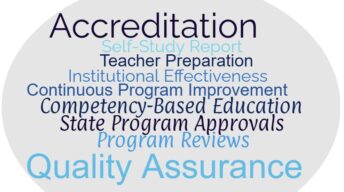An effective quality assurance system is essential to a university’s continuous program improvement. This can involve regular data collection and analysis on multiple key metrics, seeking input and recommendations from both internal and external stakeholders, utilizing high-quality assessments, and more. Here are some innovative tips for how colleges and universities can ensure that they have exceptional academic programs through their quality assurance system:
– Use digital platforms and tools to streamline the data collection and analysis process, and to provide timely feedback and reports to faculty and students. For example, online surveys, dashboards, learning analytics, and e-portfolios can help monitor student learning outcomes, satisfaction levels, and engagement rates.
– Establish a culture of quality assurance that values collaboration, innovation, and diversity. Encourage faculty and students to participate in quality assurance activities, such as peer review, self-evaluation, curriculum design, and accreditation. Provide incentives and recognition for their contributions and achievements.
– Adopt a learner-centered approach that focuses on the needs, preferences, and goals of the students. Design curricula that are relevant, flexible, and aligned with the learning outcomes and competencies expected by the employers and the society. Provide multiple pathways and options for students to customize their learning experience and demonstrate their mastery.
– Incorporate experiential learning opportunities that allow students to apply their knowledge and skills in real-world contexts. For example, internships, service-learning projects, capstone courses, and simulations can help students develop critical thinking, problem-solving, communication, and teamwork skills.
– Seek external validation and benchmarking from reputable sources, such as accreditation agencies, professional associations, industry partners, alumni networks, and international rankings. Compare your academic programs with the best practices and standards in your field and region. Identify your strengths and areas for improvement and implement action plans accordingly.
By following these tips, college and university teams can create a quality assurance system that will help ensure that their academic programs are exceptional. Most importantly, they can be confident that they are meeting the needs of their students–which should be their #1 priority.
###
About the Author: A former public school teacher and college administrator, Dr. Roberta Ross-Fisher provides consultative support to colleges and universities in quality assurance, accreditation, educator preparation and competency-based education. Specialty: Council for the Accreditation of Educator Preparation (CAEP). She can be reached at: Roberta@globaleducationalconsulting.com
Top Photo Credit: Scott Graham on Unsplash

